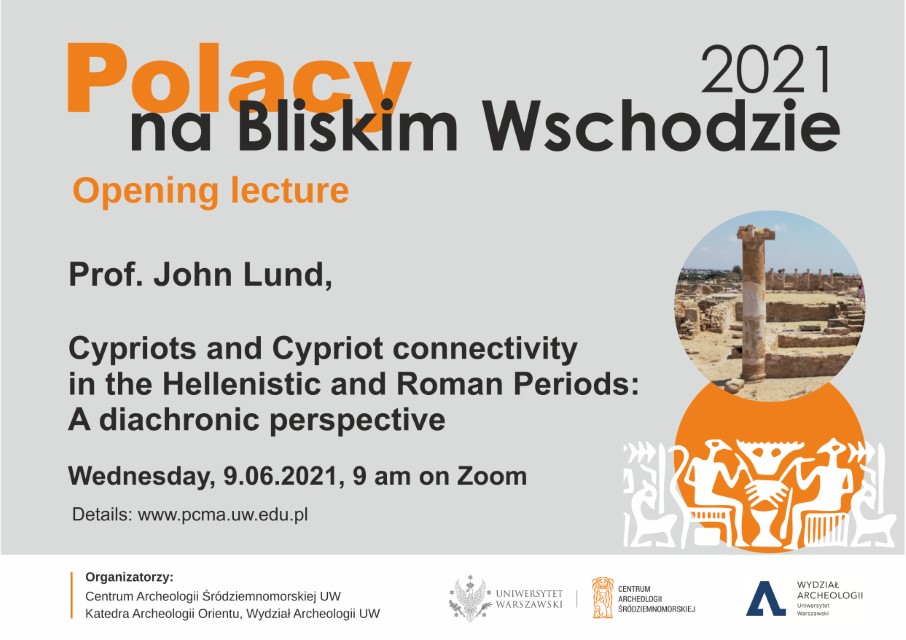Prof. John Lund will be the keynote speaker of this year’s “Poles in the Near East” conference. He will open the proceedings with the paper “Cypriots and Cypriot connectivity in the Hellenistic and Roman Periods: A diachronic perspective”.
Prof. John Lund is the senior researcher and assistant keeper at the Collection of Classical and Near Eastern Antiquities in the Danish National Museum. He took part in excavations and surveys in Tunisia, Cyprus and Greece and collaborated in the research initiative “Pot, Potters and Society in Ancient Greece”. His main interests are the Phoenician/Punic civilization, Cyprus and North Syria in the Hellenistic and Roman periods, transport amphorae and the history of Danish research in Classical Archaeology.
Abstract: The aim of this paper is to explore if fluctuations in Cypriot connectivity from the 4th century BC to the 3rd century AD may contribute to our understanding of Hellenistic and Roman Cyprus, and help explain why these two periods have often been perceived as being in some way different from what went before. In the Bronze Age, Cyprus is thought to have been “a diverse, highly specialised and well organised polity that coordinated if not controlled transport, communication and exchange within and beyond the island” (A.B. Knapp, The Archaeology of Cyprus: From Earliest Prehistory through the Bronze Age. Cambridge 2013, 432). An active role has also been attributed to the islanders in the Iron Age, and the archaeological material and written sources suggest that things were not much different in the Archaic and Classical Periods. In the Hellenistic and particularly in the Roman Periods, by contrast, the evidence for Cypriots abroad and for Cypriot exports to the outside world seems less strong, which may imply that relatively fewer Cypriots were active in overseas trade in these periods than before. The paper offers, in conclusion, some tentative suggestions about the reasons for the apparent change in the Cypriot connectivity.
- Wednesday, 9.06.2021, 9.00 am
- The lecture is free of charge and open to the public, but registration is required: (link to Google form)
- Read more on the Poles in the Near East conference.

